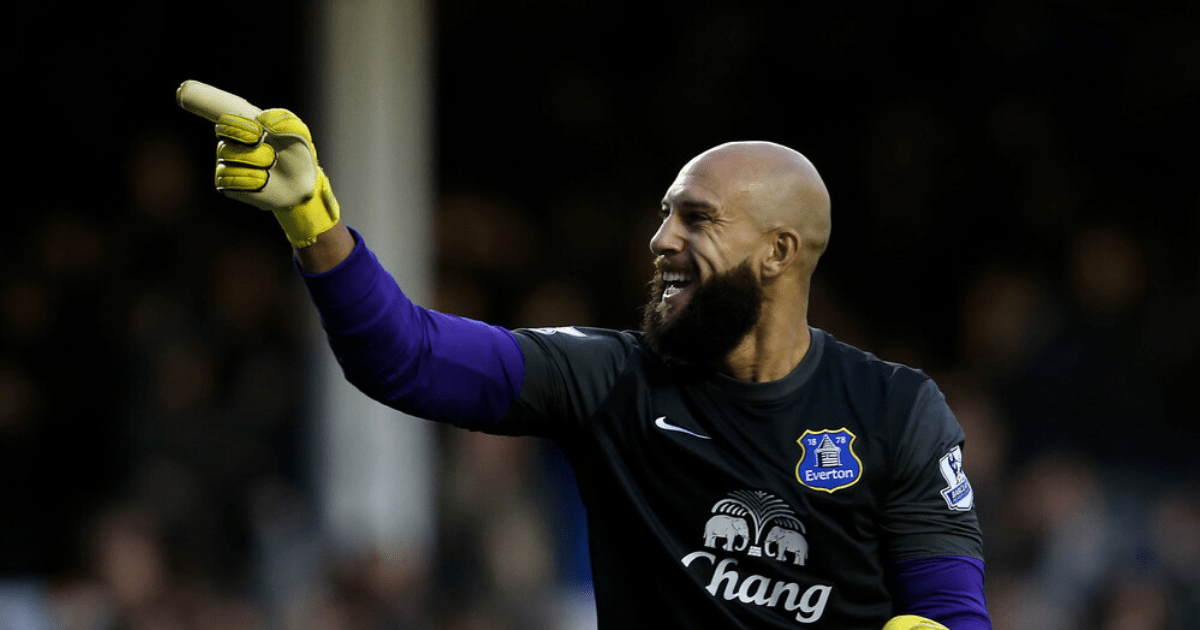Former Teammates, Now Strangers
Former Everton goalkeeper Tim Howard, who played alongside Mikel Arteta for 152 games, has revealed that the Arsenal manager is no longer the friend he once knew. Howard shared that the person Arteta has become as a manager is unrecognizable compared to their time together on the field.
The Evolution of Mikel Arteta
During their time at Everton from 2007-2011, Howard and Arteta shared many moments together. However, Howard now sees a significant change in Arteta's demeanor when he interviews him as a manager for the Daily Mail. While there are glimpses of the old camaraderie, Arteta quickly transitions into his professional persona once the interview begins.
From Midfield General to Managerial Maestro
Howard fondly recalled Arteta's time at Everton, where he was considered David Moyes' "Crown Jewels." The Spaniard's influence in the dressing room and his tactical prowess earned him admiration from both teammates and the coaching staff. Moyes entrusted Arteta with significant responsibilities, which he handled with ease and skill.
A New Chapter at Arsenal
After a successful stint at Everton, Arteta made a £10 million move to Arsenal in 2011. Following his retirement from playing, he returned to the Gunners as head coach in 2019. Under his leadership, Arsenal secured an FA Cup victory in his first year and are now contenders for the Premier League title.

Embracing Change for Success
Despite the noticeable transformation in Arteta's persona, Howard views it as a positive evolution. He believes that Arteta's growth as a manager has been instrumental in Arsenal's progress. Reflecting on the changes, Howard notes that adapting to the demands of management has allowed Arteta to define his leadership style and project a new image.
Frequently Asked Questions
How does a football goalkeeper become proficient?
To become a skilled goalkeeper, you need to focus on agility, reflexes and positioning. Goalkeepers need to be adept at stopping shots, controlling the penalty box through punching and catching, and also distributing with both their feet and hands. Goalkeeping also requires mental resilience, the ability to make decisions under pressure and good communication with defense. In order to master the art of goalkeeping, it is important to practice consistently, receive constructive feedback from your coach, and analyze performances in order identify areas for improvement.
How can I improve the technique of my football?
Improving your football technique requires consistent practice and a focus on fundamentals. The importance of regularly performing drills to improve ball control and accuracy in passing and shooting is paramount. A technique that is greatly enhanced by focusing on improving the balance and coordination of your weaker side and perfecting it through agility training will also be improved. You can improve your technique by observing professional footballers. Analyzing their positions, movements, and decisions.
What role is played by a head coach in a football squad’s success?
The coach is a key player in the success of a football squad. This role involves developing training programs, planning tactically, and managing players. Coaches are responsible for creating effective training sessions, developing strategic game plans and motivating their players to do their best. Coaches make important decisions about player placement and selection, while also managing team dynamics to maintain a positive environment. They are the ones who guide teams through difficult situations and motivate them to succeed.
Explain the offside rule to me.
The offside rule is a fundamental aspect of football aimed at preventing players from gaining an unfair advantage. Offside is when a player’s head, body or feet are in the opposite team’s side of the field, closer to their opponent’s goal than the ball, and also the next-to-last player (typically, the last player on the outfield) at the time the ball is passed to them. The fact that a player is in an “offside” position does not make it an offense. It only becomes an offense when the player actively gets involved in the play or interferes with the opponent.
What kind of physical conditioning is best for a football player?
A well-rounded conditioning programme for football players should focus on different aspects of fitness. This includes aerobic exercises for endurance, sprint training for speed and agility, strength training to improve power, and flexibility routines to prevent injury and enhance recovery. Sport-specific drills, which simulate match conditions, are also beneficial for preparing your body to the physical demands that football places on it. It is possible to tailor the program for each individual by working with a certified coach or fitness professional.
Statistics
- Goalkeepers who engage in specialized reaction-time training reduce their goals-conceded tally by an average of 25% over a season.
- Youth players who participate in football education programs have a 35% higher chance of being scouted by professional clubs.
- Players who train for more than 10 hours a week show a 20% improvement in technique compared to those who train for less time.
- A consistent mental focus regimen, including visualization techniques, can enhance player concentration levels by up to 20% during matches.
- Studying match footage for at least 4 hours a week can lead to a 10% improvement in a player’s tactical awareness on the field.
External Links
ussoccer.com
soccercoachweekly.net
fifa.com
topendsports.com
fai.ie
How To
Football Passing Techniques: How To Improve Your Skills
To perfect your passing, you must master various techniques. These include the push pass and driven pass. To become versatile, practice each technique with both your feet. To better replicate match conditions, use passing drills that include moving targets or variable distances. Focus on accuracy rather than power when passing. It is important to repeat passing exercises daily. Analyze professional players to understand the timing and creativity of their passing choices.

